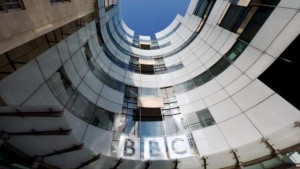
After more than 40 years of operation, DTVE is closing its doors and our website will no longer be updated daily. Thank you for all of your support.
Ofcom’s BBC report card: conscientious, but could do better
 Ofcom’s first annual report on the BBC’s performance since becoming the UK public broadcaster’s independent regulator bathed the Beeb in lukewarm praise – it said the corporation was “generally delivering on its remit for audiences” – before outlining a number of areas where it said it needs to do better.
Ofcom’s first annual report on the BBC’s performance since becoming the UK public broadcaster’s independent regulator bathed the Beeb in lukewarm praise – it said the corporation was “generally delivering on its remit for audiences” – before outlining a number of areas where it said it needs to do better.
The regulator’s ‘room for improvement’ list focused on the need for greater transparency, suggesting that the BBC did not pay sufficient attention to the impact of its plans on other players, and on the need for more innovation and more UK-focused content.
“The BBC is not sufficiently transparent, particularly in the area of competition. It does not routinely explain planned changes in its public service activities in sufficient detail to potentially affected parties, which it needs to do to assess the potential impact of its activities on competition,” the regulator said.
At the same time, Ofcom called on the Beeb to be “more innovative and to take more risks” in order to get original content made that is held to be relevant to UK audiences. It warned against relying on co-production deals with the likes of Netflix, which may not result in content that “specifically reflects the lives and issues of UK audiences”.
Ofcom has banged this particular drum previously. Last year it introduced new rules that called for at least three quarters of all programming hours on the BBC’s main channels must comprise original productions commissioned by the BBC for UK audience, reaching 90% during peak hours on BBC One and BBC Two, restricting its ability to air US and foreign-language shows in primetime.
In its report, Ofcom noted that the BBC faced challenges in delivering new, original content with a UK focus, but did not offer specific solutions. It observed that “in common with public service broadcasters as a whole”, the Beeb’s investment in first-run UK-originated content had declined in recent years, falling by 23% in real terms since 2011.
The BBC also scored low marks for its efforts to engage young people, where its reach is declining. While UK adults as a whole spend two hours 44 minutes a day watching the Beeb, that figure falls to one hour 19 minutes among 16-34 year-olds.
Ofcom made a more general point of highlighting what it described as the “backdrop” to its review: the rise of Netflix and Amazon and their offer of high-quality content, the appeal of YouTube and the move of audiences away from live scheduled programmes to on-demand and online content.
While satisfaction with the BBC and other public service broadcasters remains high, and BBC One remains the single most-viewed broadcast channel, spending on original UK content is falling at a time when competition from large online players is increasing. The age profile of BBC viewers is increasing as the younger audience leads the move to online platforms, with 16-34s now spending more than half of their viewing time on non-broadcast content, including almost an hour a day on YouTube content.
For Ofcom these shifts in the media landscape and media consumption underscore the need for more transparency and risk-taking. Referring to the need to improve on the former, the regulator noted that “in a fast-changing sector, transparency will be important as the BBC considers how it will continue to deliver for audiences” because “engaging with third parties should enable it to innovate and evolve within a competitive landscape, enabling co-operation and partnerships across the creative industries while considering how its activities may affect competition in the UK.”
Partnership is the key word here. There have been plenty of siren voices sounding the alarm over the future of public service broadcasting in recent months, from the House of Commons Public Accounts Committee’s report highlighting the “significant risks” faced by the BBC thanks to changing audience behaviour to the Beeb’s own director of radio and education, James Purnell’s warning that the corporation needs to “change faster” to reach more young people and compete with Netflix and Spotify. BBC director-general Tony Hall meanwhile unveiled his own recipe to take on the FAANGs in September when he complained that the UK media industry was being forced to “compete with global giants with one hand tied behind its back”.
For Ofcom, the answer is not for the BBC to be unleashed to compete on its own terms but for it to team up with other public service broadcasters. There has been much speculation in this context about the revival in some form of Project Kangaroo, the UK broadcasters’ earlier plan for a joint platform that was nixed on the grounds that it would distort competition.
However, in making a call earlier this year for ‘Kangaroo 2’, Ofcom CEO Sharon White also argued that the PSBs will “inevitably have to partner with their competitors, finding common ground to navigate the changing landscape together”. There is a certain creative ambiguity at work here: Ofcom appears to be calling for collaboration with Netflix on one hand, while warning against too much collaboration with it on the other.
Whether the inevitable tension between the BBC’s public service remit and pressure to cater to specific demands – for example to deliver more UK-centric content within tighter budget constraints – and the urgency of combatting the drift to online platforms, particularly among the young, can easily be resolved remains to be seen.


